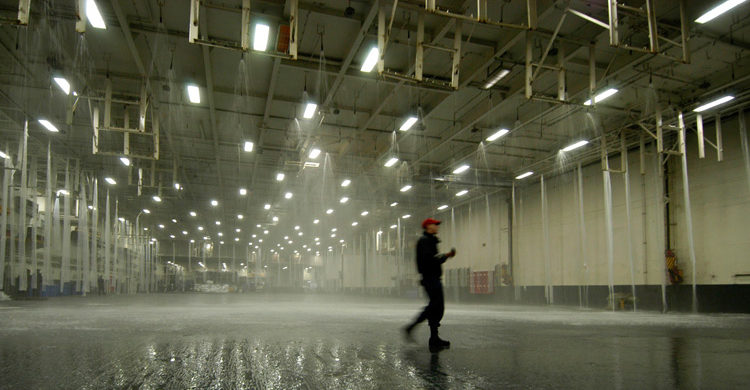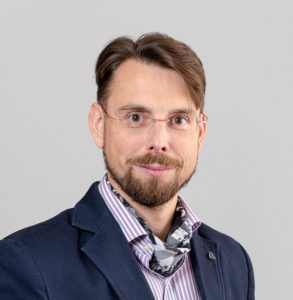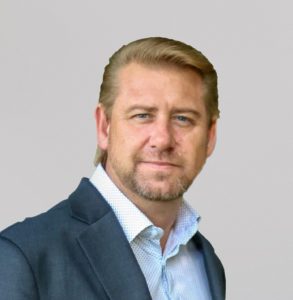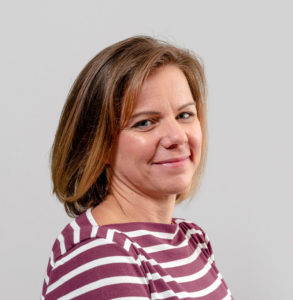“Working on the internationalisation process of NFPA standards”
14 Julie 2016

When it comes to fire safety, an increasing number of parties in the Netherlands are making use of the standards established by the national fire protection association (NFPA). Although the advantages of standards like the NFPA 13 (sprinklers), NFPA 20 (pumps for fire protection) and NFPA 25 (inspection and maintenance) are undeniable, some aspects are still under debate. Riskonet, a network organisation of risk professionals, thus invited NFPA expert matt klaus to come to the Netherlands and spoke with him. “The NFPA standards are becoming the norm all over the world and because of that we are working on the launch of international versions.”
Although the NFPA standards were initially created to suit American practices, their clarity and suitability are catching on in more and more countries. Most of the standards are also fairly up to date, in part because they are established and fostered by broad-based committees of stakeholders, many of them even including end users and consumers. “We are an ‘open code development body’, a not-for-profit organisation that essentially welcomes everyone’s contribution to the standards. These standards are so-called ‘open consensus-based’ standards: transparent and accessible to everyone”, said Klaus, who emphasised that the standards are also reviewed and updated every three years.
Interpretation and cultural differences
Nevertheless, applying the standards doesn’t always run smoothly everywhere. During a seminar organised by Riskonet, Klaus talked with representatives of fire safety and prevention in the Netherlands. “The discussion addressed the interpretation of certain stipulations in the NFPA 13 standard for sprinklers. It focused mainly on the working mechanism and the differences in compliance cultures between the US and elsewhere in the world.
Klaus described European standards as usually being prescriptive-based with regulations that are intended to be taken fairly literally. “If a measure or method is not included in the standard, the European perception would be that it wasn’t permitted either. The NFPA standards, however, are performance-based standards. As such, they take a very different approach: they were developed as based on what we call the ‘equivalent approach’. We realise that a standard can’t be made to apply to every conceivable design process and every sprinkler product. If the standard doesn’t provide a certain solution for a sprinkler issue, engineers will then have to develop customised performance-based solutions that will have to be submitted to the proper authorities for approval.
Developing customised solutions
In this way, the NFPA standards allow for developing customised solutions and having them approved, a policy which happens to provide an independent risk engineering specialist like Riskonet with an important role to play. Authorities usually ask risk professionals for an unbiased assessment. “I foresee an increase in the need for these unbiased ‘third-party assessments’. To my mind, we’re talking here about a major advantage of the NFPA standards: if a solution isn’t mentioned in the hundreds of pages of the document, this allows for the possibility of new technology, products and insights – under the important condition that the authority with jurisdiction approves the equivalent design, the solution.” In the United States, this is usually the fire department – on behalf of the city where the property is located – but it would also be the insurers in certain cases.
Matt Klaus (NFPA) foresees an increase in the need for unbiased ‘third-party assessments’. In his work, Ron de Bruijn, Managing Partner at Riskonet, notices that this is happening already. “There’s a need for advice about developing workable safety concepts that can be applied effectively to actual situations, especially in the complex settings of our industrial customers.”
“It’s particularly when the NFPA standards don’t offer an off-the-peg solution that we provide advice regarding a safe, adequate alternative solution: an unbiased thorough substantiated assessment suitable for conducting a high-level discussion with government authorities and insurers.”
Dealing with special situations
Matt Klaus emphasised that the NFPA standards provide solutions for more than 90 percent of the situations. “Anyone working on a sprinkler solution for a hotel, office or apartment complex will undoubtedly find everything he needs to know in the NFPA 13 documents: which sprinklers are permitted, how they have to be installed, how to deal with special situations…it’s all in there.”
As construction methods and materials change over time, this also has to be reflected in the standards. Matt Klaus told about an upcoming conference in Texas where he and a technical committee of around 25 people are going to be studying the documents for the new NFPA 13 standard that will have to be issued in 2019. “The nice thing about this method is that none of the stakeholder groups in the committee has more than a third of the seats. This balanced composition keeps any sprinkler producers or other potentially biased parties from dominating the discussion or hijacking the committee.”
The customer’s typical request in these situations, according to Ron de Bruijn: “’We want to provide ourselves with good safety measures. Help us develop a good solution that’s in line with our operations and will be supported by recognised norms or standards.’ We then analyse the situation and the risks and, as often happens in industry, if the norms don’t provide a standard solution, we apply our expertise and experience to finding what is known as ‘equivalency’: a solution that’s not included in the standards but would still be adequate when properly substantiated.
In these cases, you automatically turn to the NFPA standards because they have an equivalency clause. What we provide, then, is the solution and the theoretical and practical substantiation.” This support can be taken a step further, however, since the customer can ask Riskonet to conduct discussions (either with the customer or on his behalf) with government authorities and insurers about risks and safety concepts.
Submit a proposal
Klaus also aimed his explanation specifically towards parties outside the US who often conduct similar discussions or repeatedly run up against similar gaps. “Engineers, sprinkler producers, insurers – anyone who has a problem with a stipulation in the standard – can submit a code change proposal to the committee in charge of that standard. I admit, however, that it can take months or longer before the change is introduced. After all, a standard will always lag a bit behind current developments.”
According to Matt Klaus, what makes the NFPA standards so useful is their basis in actual practice. “Insurance company AIG conducted tests for the fire safety of televisions with new polyvinyl fluoride screens. We can hardly wait to get the test findings so we can apply them to our standards, although it will probably be a while before the design criteria are completely formulated. But even though they aren’t included in our documents yet, fire department authorities are free, in the mean time, to approve them already in individual cases.”
De Bruijn agrees with Klaus: the need for this support is going to increase in many countries. “As the public sector is withdrawing its authority, and this is now happening particularly in the Netherlands and other countries, the private sector is taking on more responsibility. This also includes taking on the burden of proof that these matters will be arranged effectively and safely. This responsibility is also an opportunity to develop safety concepts that offer the best possible balance between risks, safety and business operations. We will be pleased to give our recommendations in this regard.”
Riskonet thus offers an expert opinion in the interplay among the private sector, insurers and the public sector. “We will continue to invest in this expertise, both on our side and our customers’ side. Since our employees participate in the NFPA’s committees, they are actively involved in the ongoing development of the NFPA standards. They also train safety officers in NFPA standards at the customer’s premises. This is why we see holding the roundtable with NFPA expert Matt Klaus as an investment in our own expertise as well as that of our business partners.”
Growing importance
Klaus is proud of the growing importance of the NFPA standards, both in the US and abroad. “The first sprinkler standard dates back to 1896. Here is a standard that’s 120 years old and still going strong; what started as 40 pages is now 400 pages! The standards aren’t our work or our product – they’re all generated by what’s going on in the real world. Owners of buildings, producers of systems, users, designers, testing labs, researchers, system installers: they can all contribute. The development of the standards continues, just like the development of the global market for these standards. Klaus: “Their international distribution and acceptance is increasing. We’re going to be responding to the demands of buyers in countries where people work not with inches but with centimetres. We’re working on developing international versions of our standards to make the system more accurate and easier to apply.
Meanwhile, Klaus is relying on an expansion of international input into the NFPA’s technical committees. “All of this is going to benefit the effectiveness of the standards. Who knows? Maybe we’ll someday merge all of those many international standards into a single one. That’s what we’re working towards, by taking small deliberate steps.
Matt Klaus, Senior Fire Protection Engineer, is responsible at the NFPA for standards related to commissioning, integrated system testing and automatic sprinkler systems.





